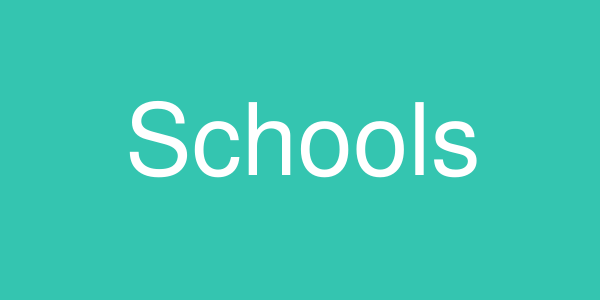Over the last eighteen months, dozens of reports point out unprecedented levels of capital flowing into the education technology sector. In 2014, over $2.3 billion was invested in ed tech. Venture investment in K-12 products and solutions, alone, was up over 32% in 2014—totaling $642 million—the bulk of which went to seed or early stage businesses. As a relative newcomer to education, I see investor enthusiasm for ed tech as a critical element in improving student outcomes at scale, but smart capital is just one piece of the puzzle. What’s really exciting is that we are seeing more teacher-entrepreneurs launching start-ups and developing products that may transform the educational landscape for good.
The reasons more teachers are getting involved in ed tech are varied. Barriers to entry are falling. Lower development costs mean that teacher-entrepreneurs can get to proof of concept faster, beta test and implement without sacrificing their day jobs and a deep commitment to their kids. Public schools are beginning to integrate technology at scale, following decades of investment in basic infrastructure. Great educators, unhappy with outdated books and off-the-shelf products, are showing fierce appetite for the sort of tech tools that are transforming every other aspect of our lives. But there’s another, simpler reason: Teachers make great entrepreneurs.
Here are five reasons why:
5. Sales and marketing comes naturally. Over the last few years, my company has evaluated hundreds of ed tech companies and made several acquisitions. I’ve met founders who couldn’t sell water in the desert. I’ve sat through dozens of awkward pitches from brilliant developers who have a hard time translating ideas into words. Not so for great teachers. Steve Jobs’ “reality distortion field” is now the stuff of legends. Like great teachers, he had mythical power to convince coworkers that the impossible was possible. He sold colleagues, investors, and customers on big ideas by convincing them to expect more and do better. There is a reason that the single most important factor in student achievement is the classroom teacher. Content is critical, but research suggests that noncognitive factors like grit and perseverance are game-changers, particularly for low-income students. Great teachers don’t just teach, they make students believe that they can do it. They make it fun and make it matter. Ever try selling polynomials to a group of thirteen-year-old boys? Like great sales and marketing, the magic of great teaching is part substance, part entertainment – delivered live, every day, in 45 minute chunks.
4. Teachers are natural fundraisers. Great teachers know how to get their kids what they need to succeed. Public funding covers the basics, but field trips, art projects, or a warm coat quietly delivered to a needy student are often difference-makers. Teachers leverage every available resource, including parents, local businesses owners, or their school principal. They are not afraid to make “the ask.” They are great fundraisers because they know how to tailor a pitch to their audience and hone in on the value proposition. In education-speak, that’s called “differentiated instruction.” Teachers are also wiling to put skin in the game. Research shows that, with little fanfare, most teachers spend $500.00 of their own money on classroom resources. Given the humility of most educators I know, I suspect that the real number is much higher.
3. They know when to throw out the playbook. Great entrepreneurs are wiling to improvise, modifying their business plan as they learn more about their audience or circumstances. All too often, I’ve seen founders adhere to a product feature for too long, even when it became clear to customers—and investors—that it was a loser. Teachers rarely have the luxury of time. They are expected to engage a tough audience, impart knowledge and change lives between bells with a fixed curriculum and prescribed textbooks. Every class is like an episode of “Iron Chef.” Great teachers fail fast and pivot. In a class of twenty students, half the students may be lost or bored at any given time. One student’s question can take a lesson plan in an entirely different direction. Snow days. Sick kids. Budget cuts. Teachers know how adapt, and do it quickly.
2. Teachers know what students want. Why is it important that teachers design products? Because teachers know what students want and educators need. Product developers think about the process of understanding consumer or user need as part of the design thinking process (also sometimes called human-centered design). IDEO and the Stanford d.School call this process “empathy”—trying to truly understand the needs and constraints users face. When teachers create products for the classroom, empathy comes naturally—they understand the myriad demands in a classroom and can grasp most effective solution.
1. They care. Spoiler alert: teacher entrepreneurs aren’t in it for the money. Last year, we had over 6 million teachers used our free platform to develop and share lesson plans, uploading 800,000 digital resources. They do it out of a desire to share and collaborate, an intense frustration with the status quo, and the knowledge that there is a better way. They want the best for “their kids.” When an entrepreneur is passionate about their product and customers, investors know it and customers get it.
Teacher entrepreneurship is not without risk. Superintendents and school leaders know well the cost of pulling great teachers out of the classroom and grooming them for leadership positions. Skills don’t always translate but, more importantly, we worry that we’re doing a disservice to students whose lives they change every day, year after year. But, like superintendents and school leaders, I’m fascinated by how we can bottle-up the magic of great teaching, and helping it scale.
Also published in Fast Company on Feb 24, 2015.
http://www.fastcompany.com/3042730/why-teachers-make-for-some-of-the-bes...
